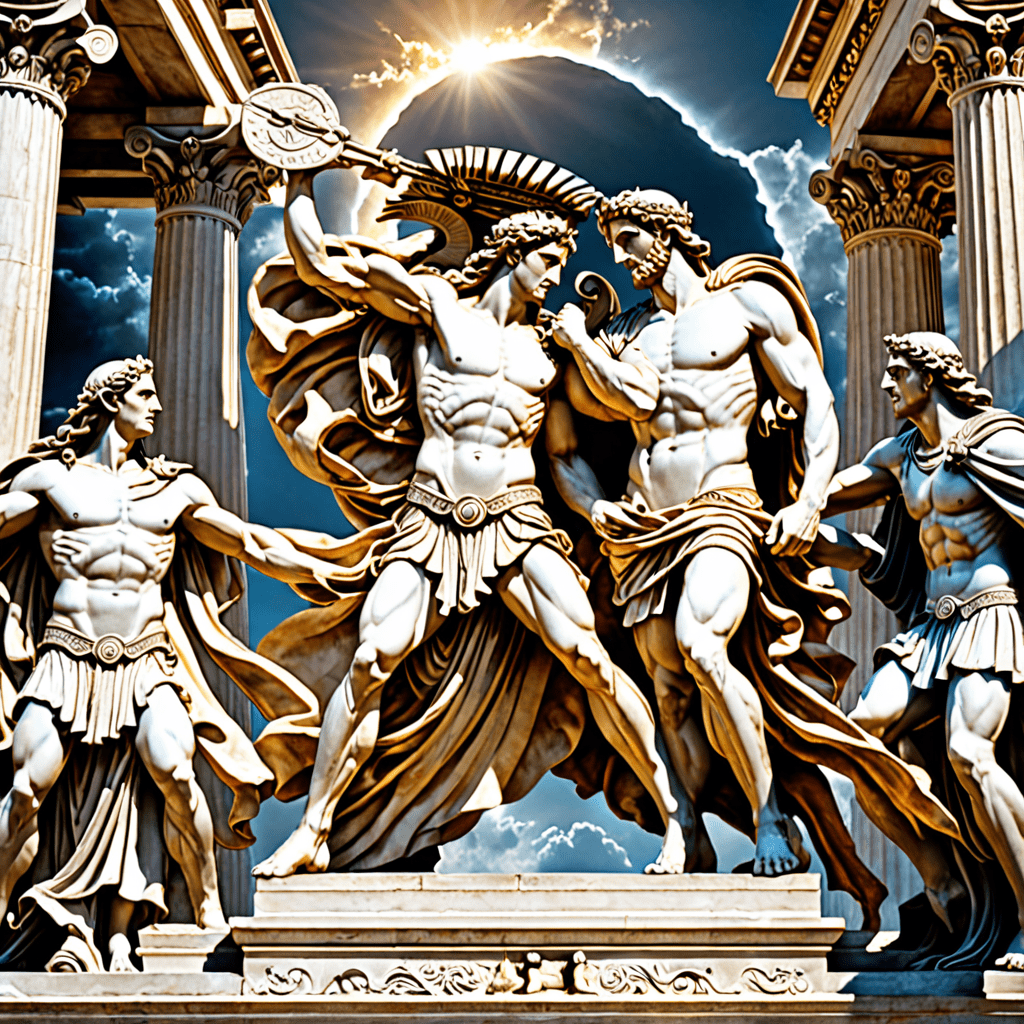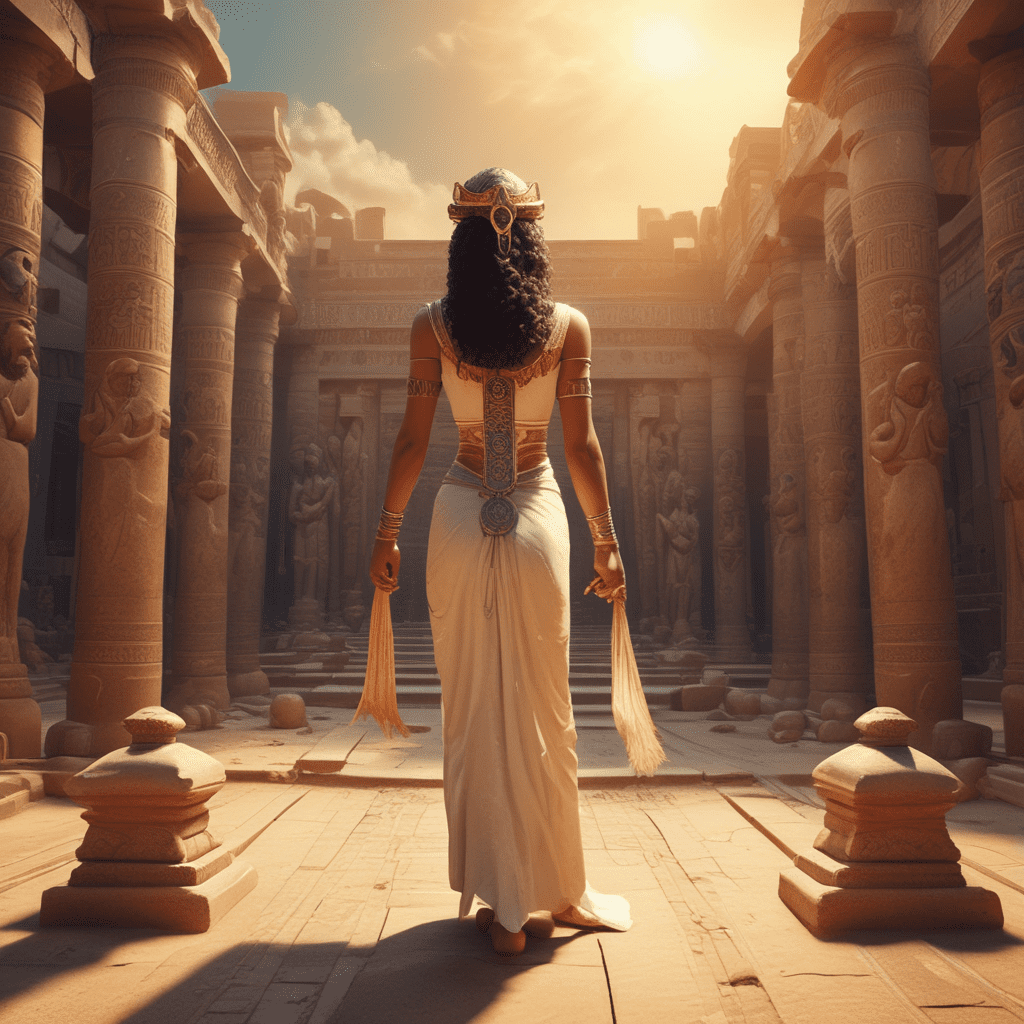The Most Iconic Legends of Ancient Deities and Their Symbolism
I. Introduction
Deities have played a significant role in shaping the beliefs and practices of ancient cultures around the world. These divine figures often embody the values, struggles, and aspirations of the civilizations that worship them. Mythology and legends serve as a window into the human experience, allowing us to explore the complexities of life, death, and the universe through the stories of these powerful beings.
This article will delve into some of the most iconic deities from various ancient cultures, highlighting their legends and the symbolism associated with them. By examining these figures, we can gain a better understanding of the cultural contexts in which they were revered and the profound impact they had on human civilization.
II. The Pantheon of Ancient Greece
A. Overview of Greek mythology and its cultural significance
Greek mythology is a rich tapestry of stories and characters that reflect the values and beliefs of ancient Greek society. The Greeks personified natural phenomena, human emotions, and moral lessons through their gods and goddesses. This mythology not only served religious purposes but also provided a framework for understanding the world around them.
B. Zeus: The King of the Gods and Symbol of Authority
1. Legends associated with Zeus
Zeus, the ruler of Mount Olympus, is perhaps the most well-known of all Greek deities. He is often depicted as a powerful figure wielding a thunderbolt, symbolizing his authority over the heavens and earth. Many legends recount his numerous adventures, including his battles against the Titans and his numerous romantic escapades, which produced many demi-gods and heroes.
2. Symbolism of lightning and oak trees
The lightning bolt is a powerful symbol of Zeus’s authority and dominion over the sky. It represents both his ability to bestow blessings and deliver punishment. Oak trees, often associated with Zeus, symbolize strength and endurance, reflecting his role as the protector of the Greek people.
C. Athena: Goddess of Wisdom and Warfare
1. Myths surrounding Athena’s birth and her role in the Trojan War
Athena, born fully grown from Zeus’s forehead, is the goddess of wisdom, courage, and warfare. She played a crucial role in many myths, including her involvement in the Trojan War, where her strategic mind helped the Greeks achieve victory. She is revered not just for her martial prowess but also for her wisdom and fairness.
2. Symbolism of the owl and olive tree
The owl, often seen as a symbol of wisdom, is closely associated with Athena. It represents knowledge and the ability to see what others cannot. The olive tree, which she gifted to humanity, symbolizes peace and prosperity, reinforcing her role as a nurturing and protective figure.
III. Egyptian Deities and Their Mystique
A. Introduction to Egyptian mythology and its gods
Egyptian mythology is characterized by a diverse pantheon of gods and goddesses, each governing different aspects of life and nature. These deities were central to Egyptian religion and were often depicted in art and architecture, reflecting their significance in the daily lives of the people.
B. Ra: The Sun God and Symbol of Creation
1. Legends of Ra’s daily journey across the sky
Ra, the sun god, is one of the most important figures in Egyptian mythology. Each day, he is believed to travel across the sky in his solar boat, bringing light and life to the world. His journey represents the cycle of life, death, and rebirth.
2. Symbolism of the sun and light in Egyptian culture
The sun symbolizes creation, illumination, and the divine power of life. In Egyptian culture, Ra represents the ultimate source of energy and vitality, embodying the idea of regeneration and the cyclical nature of existence.
C. Osiris: God of the Afterlife and Resurrection
1. The myth of Osiris and his significance in funerary practices
Osiris, the god of the afterlife, was associated with resurrection and regeneration. His myth involves betrayal by his brother Set, followed by his dismemberment and subsequent resurrection by his wife, Isis. This story played a crucial role in shaping Egyptian funerary practices, as Osiris became a symbol of the hope for life after death.
2. Symbolism of death, rebirth, and agriculture
Osiris is often linked to the cycles of nature, particularly agriculture. His death and rebirth symbolize the seasonal cycles of planting and harvesting, reinforcing the importance of fertility and renewal in Egyptian society.
IV. The Rich Tapestry of Norse Mythology
A. Introduction to Norse mythology and its influence on modern culture
Norse mythology, with its tales of gods, giants, and heroes, has profoundly influenced modern literature, art, and popular culture. The stories often explore themes of fate, heroism, and the struggle between order and chaos.
B. Odin: The All-Father and God of Wisdom
1. Legends of Odin’s quests for knowledge
Odin, the All-Father, is known for his relentless pursuit of knowledge and wisdom. He sacrificed one of his eyes at Mimir’s well to gain cosmic knowledge and often wandered the realms in disguise, seeking wisdom from various beings.
2. Symbolism of ravens and the Yggdrasil tree
Ravens, often associated with Odin, symbolize intelligence and foresight. They serve as his messengers, representing the connection between the divine and mortal realms. The Yggdrasil tree, the world tree, symbolizes the interconnectedness of all life and the cyclical nature of existence in Norse cosmology.
C. Freyja: Goddess of Love and Fertility
1. Myths about Freyja and her role among the Aesir
Freyja, a prominent goddess in Norse mythology, represents love, fertility, and war. Her myths often highlight her beauty and power, as well as her role in the afterlife, where she receives half of those who die in battle.
2. Symbolism of the falcon and the brisingamen necklace
The falcon, a symbol of freedom and femininity, is associated with Freyja, representing her ability to transcend boundaries. The brisingamen necklace symbolizes love and beauty, embodying her dual nature as a goddess of both love and war.
V. The Deities of Hindu Mythology
A. Overview of Hindu mythology’s complexity and diversity
Hindu mythology is incredibly diverse, featuring a vast array of deities, each with unique attributes, stories, and significance. This complexity reflects the rich tapestry of beliefs and practices within Hindu culture, where gods are often seen as manifestations of a singular divine reality.
B. Vishnu: The Preserver and His Avatars
1. Legends of Vishnu’s incarnations (e.g., Rama, Krishna)
Vishnu, the preserver of the universe, is known for his ten avatars, which include famous figures like Rama and Krishna. These incarnations embody the principles of dharma (cosmic order) and are central to many Hindu epics and stories.
2. Symbolism of preservation and cosmic order
Vishnu symbolizes the preservation of the universe and the maintenance of cosmic order. His avatars often appear during times of chaos to restore balance and righteousness, highlighting the importance of duty and ethical conduct in human life.
C. Kali: Goddess of Time and Change
1. Myths surrounding Kali and her fierce nature
Kali is a complex goddess representing time, change, and destruction. Myths surrounding her often depict her fierce nature as she battles evil forces. Despite her fearsome appearance, she is also seen as a protector and mother figure.
2. Symbolism of destruction and transformation
Kali’s symbolism revolves around the ideas of destruction and transformation. She represents the cycles of creation and destruction, emphasizing the necessity of change in the natural order. Her fierce demeanor serves as a reminder of the power of the divine feminine and the importance of embracing life’s transitions.
VI. Conclusion
The deities of ancient cultures provide profound insights into the values, beliefs, and struggles of humanity throughout history. From the authoritative presence of Zeus and the nurturing wisdom of Athena in Greek mythology to the fierce transformation embodied by Kali in
![]()


